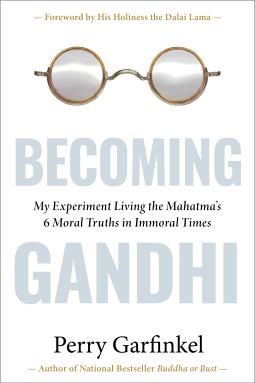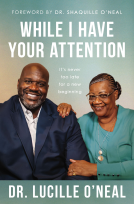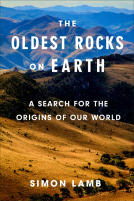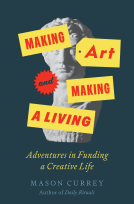
Becoming Gandhi
My Experiment Living the Mahatma's 6 Moral Truths in Immoral Times
by Perry Garfinkel
This title was previously available on NetGalley and is now archived.
Send NetGalley books directly to your Kindle or Kindle app
1
To read on a Kindle or Kindle app, please add kindle@netgalley.com as an approved email address to receive files in your Amazon account. Click here for step-by-step instructions.
2
Also find your Kindle email address within your Amazon account, and enter it here.
Pub Date Jan 30 2024 | Archive Date Feb 01 2024
Sounds True Publishing | St. Martin's Essentials / Sounds True
Talking about this book? Use #BecomingGandhi #NetGalley. More hashtag tips!
Description
The fascinating quest of a New York Times contributor to follow Mahatma Gandhi’s code of ethics in modern times—and to discover what it actually takes to “Be the change you want to see in the world”
Mahatma Gandhi championed truth and nonviolence, led the struggle for India’s independence, and staunchly stood up for the marginalized. “When I despair,” he said, “I remember that all through history the way of truth and love has always won.”
In Becoming Gandhi, veteran journalist and author Perry Garfinkel sets out on a three-year quest to examine how Gandhi’s ideals have held up in a world beset by troubling trends. “As I saw myself and society moving further away from a moral point of view,” Garfinkel states, “I wanted to see if an ordinary person living in the 21st century could, like Gandhi, follow a morally driven game plan.”
While tracing Gandhi’s legacy through India, England, South Africa, and even American communities where his spirit endures, Garfinkel attempts to follow six of the key principles that guided the Mahatma’s life:
• Truth—Practicing honesty in thoughts, words, and actions in an increasingly artificial world
• Nonviolence—Choosing peace in our words, behavior, and even choice of entertainment
• Vegetarianism—The complex ethics of deciding what we put in our mouths
• Simplicity—How to find practical antidotes to conspicuous consumer culture
• Faith—Exploring the meaning of our lives and our relationship with what we cannot know
• Celibacy (wait, really?)—The search for a moral path between permissiveness and abstinence
To many, Gandhi was a beacon of hope; to others, a lightning rod for controversy. As Perry Garfinkel found, walking (and even stumbling) in Gandhi’s footsteps can reveal how we each have a role to play in creating a more compassionate, peaceful world. “Being Gandhi is unattainable,” Garfinkel observes. “But becoming more Gandhi-like will continue to engage me as long as I live. How about you?”
Advance Praise
Praise for Becoming Gandhi
“I have always believed that the best way to preserve the legacy of the great statesmen of the past is to try to abide by the values they upheld and to apply them in our contemporary situation. I am glad to see that writer Perry Garfinkel has done precisely that with Mahatma Gandhi and shares his experiences in this book. The author provides readers with an opportunity to discover the many ways in which Gandhi-ji contributed to making the world a better place and what each of us may learn from his example.” —His Holiness the Dalai Lama, from his foreword to Becoming Gandhi
“Perry Garfinkel’s engaging and delightfully funny Becoming Gandhi shows us how the Mahatma’s message can matter in our lives. Brilliant. Highly recommended.” — Daniel Goleman, author of Emotional Intelligence and most recently Why We Meditate, with Tsoknyi Rinpoche
“It is beautiful to be inspired by Gandhi. It is even more amazing to learn to embody his love and freedom, honesty and blessings in our own lives. Perry shows us how this is possible.” —Jack Kornfield, author of A Path with Heart and cofounder of the Insight Meditation Society
“With self-effacing humor and an in-depth journalistic approach, Garfinkel opens a door to the possibility of living with the moral fortitude of Gandhi himself. Part travel book, part history of Gandhi, and part personal well-being journal, it's a fascinating read.” —Sharon Salzberg, author of Lovingkindness and Real Life
In this timely book, Perry Garfinkel writes, ‘Truth is elusive and mercurial.’ What is not elusive or mercurial is the brilliance of this book, rich with anecdotes, humor, and wisdom. Perry takes us on a journey with Gandhi, almost literally step-by-step. memoir of spiritual travel, this is the medicine we all need in these times—truly an inspiration. And that’s the truth.” Nancy Slonim Aronie, author of Writing from the Heart and Memoir as Medicine
“Engaging and insightful, Becoming Gandhi is one man’s quest to follow the footsteps of Gandhi and rediscover the moral compass that has been abandoned by today’s culture of me-centered, instant gratification. In reading, we are inspired to reflect on our own journey and what it means to align our life with our heart." - Tara Brach, author of Radical Acceptance and Trusting the Gold
“Gandhi was truly one of the last figures of the European historic colonial period and all that was linked to it. As a Brit of Bangladeshi (and therefore historic Indian) — descent, I still struggle to find our colonial past in our education system. I welcome writers like Perry who are able to transcend cultural barriers. As he writes, ‘All I need to do is take the blinders off and look for the clues along the way.’ Writing about historic events or persons is nothing new, but what is important is that Perry makes Gandhi relevant today!” —Munsur Ali, chairman of Culture, Heritage and Libraries Committee, City of London, and film producer
“What would it be like to live like Gandhi? Garfinkel finds out, not just by reading Gandhi’s words but by living Gandhi’s truths. Garfinkel’s struggle to abide by Gandhi’s morality becomes a complex meditation on the struggle to be good, and what ‘good’ even means in our own troubled times. By engaging with Gandhi’s personal code of ethics, Garfinkel makes Gandhi come alive and challenges us to think seriously about what principles we cherish.” —Andy Rotman, professor of religion, Buddhist studies, and South Asian studies, Smith College
“An integrated view of Mahatma Gandhi’s life and thought based on a careful analysis of some of his guiding principles, Becoming Gandhi illuminates areas that usually get ignored and offers a theoretically insightful and practically rich view of how to lead a Gandhian, or Gandhi-like, life in the modern world. The book also uses Gandhi to understand the nature of religious faith and to mark a moving personal journey from Judaism to Buddhism via Hinduism.” —Bhikhu Chhotalal Parekh, British House of Lords and author of Rethinking Multiculturalism
“My great grandfather, Mahatma Gandhi, used to say with amusement that he was like a magnet attracting all the faddists and nutcases of the world. When Perry approached me with his idea of living like Gandhi, my first thought was, here’s a nutcase who believes that in today’s time he can live the simple, frugal, and abstemious life that Bapu lived, and that too as an American. His journey was three folds: discovering and understanding Gandhi, not just the man but his belief; discovering the land and people of Gandhi’s India; and most important, testing himself by taking on the challenge of living according to the tenets of Gandhi, as many as he could. The other search was also to see where Gandhi was at present in the land he helped liberate. Was he at all there? Was he relevant? Did he matter? In writing it, Perry has imbibed Bapu’s wry sense of humor. This book is the result of Perry’s adventurous spirit, to go where not many dare to go, of never giving up. And above all, because he is a nutcase. Who else would have done what he has in today’s time? The book is definitely a must- read. Sail on, my dear friend.” —Tushar Gandhi, sociopolitical activist and author of The Lost Diary of Kastur, My Ba and Let’s Kill Gandhi
Available Editions
| EDITION | Other Format |
| ISBN | 9781683646921 |
| PRICE | $27.99 (USD) |
| PAGES | 256 |
Links
Available on NetGalley
Average rating from 5 members
Featured Reviews
 Mike M, Media/Journalist
Mike M, Media/Journalist
This was a wonderful book. Anyone who aspires to be better than they ever thought they could be should read it over to cover. Better yet, live it.
 Suanne S, Reviewer
Suanne S, Reviewer
Having been interested in Gandhi and India since my twenties and having read a good deal about him, I was eager to read Becoming Gandhi. The author and I are roughly the same age, being in our twenties during the 1970s and seem to have similar thoughts regarding the Viet Nam war and American life in general at that time and to have significant concerns about the viability of the human race at a time when our society seems to be moving more toward violence and lack of common decency.
The book is listed under “Gandhi,” “Religious Leader Biographies” and “Personal Transformation Self-Help” by Amazon, and I found the book to be a hodge-dodge of these classifications as well as a bit of a memoir. He winnows Gandhi’s teaching down to six points and tries to implement them in his own life. These are:
1. Truth
2. Nonviolence
3. Vegetarianism
4. Simplicity of Life
5. Faith
6. Celibacy
Journalist Perry Garfinkel spends three years traveling the world examining how well Gandhi’s ideals have held up in the present. He traces the path of Gandhi through India, England, and South Africa and talks about his accomplishments and even his flaws. He discusses his life and death by assassination on January 30, 1948, shortly after Indian gained independence from Britain. Garfinkel discusses at length the Indian words for the six points above and their meaning, so to a certain extent, this is Indian Philosophy for Dummies. There is some discussion of what Garfinkel tries to do with these precepts in his own life, but not enough to actually guide others and lacking the ups and downs and ah, ha! moments one expects from what could have been a fascinating memoir. I was left with rather ambivalent feelings about the book, it being more and less than I expected.
Readers who liked this book also liked:
Scott Michael LeRette
Biographies & Memoirs, Christian, Parenting, Families, Relationships


















